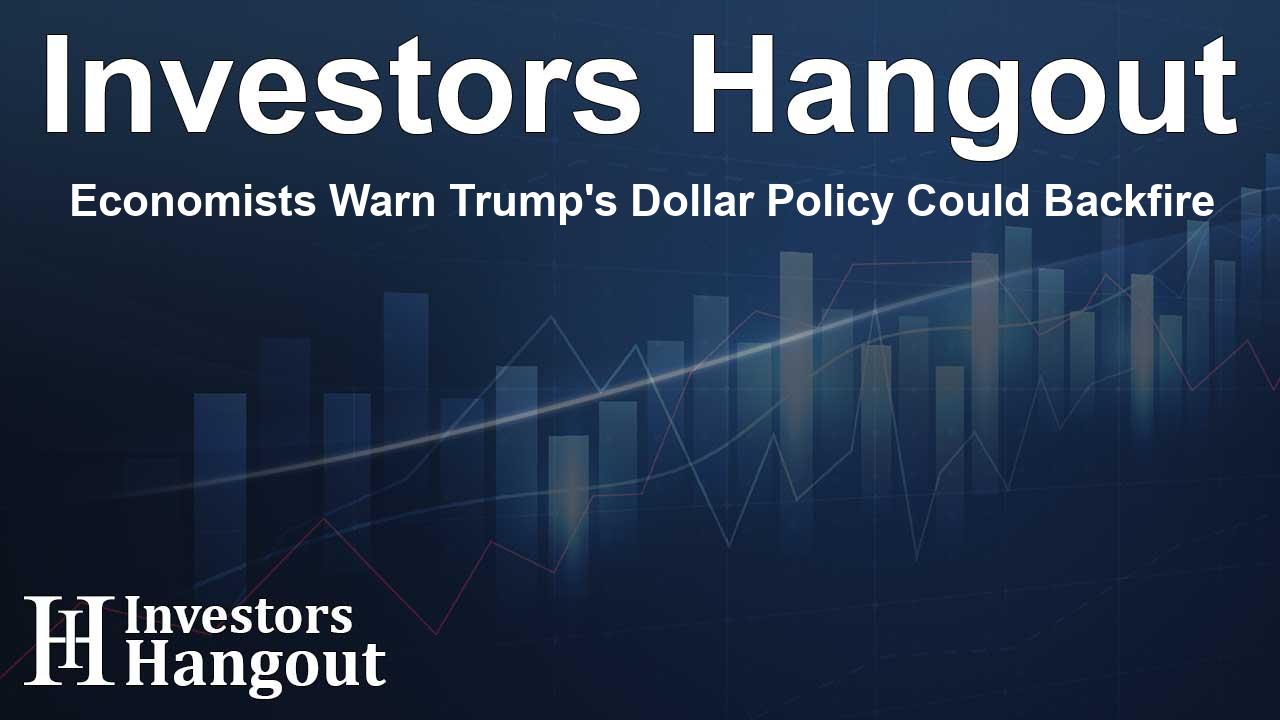Economists Warn Trump's Dollar Policy Could Backfire

Understanding Trump's Stance on the Dollar
President Donald Trump’s perspective on the dollar has become a topic of heated debate among economists, particularly by experts like Chief Economist and Global Strategist Peter Schiff. Trump has claimed that a strong dollar is desirable, yet he paradoxically suggests that a weaker dollar can lead to greater wealth.
Debate Over Dollar Strength
According to Trump, a strong dollar is beneficial as it can help combat inflation. However, he added that it doesn’t facilitate selling goods effectively—his remarks suggesting that weaker currencies can enhance economic performance. This has raised eyebrows among economic analysts who wonder about the long-term effects of such policies.
Experts Weigh In
Experts warn that while a weaker dollar might assist U.S. exporters and multinational corporations, it could potentially harm households by inflating the prices of imported goods. Kevin Thompson, the CEO of 9i Capital Group, highlighted this contradiction by stating, "A weaker dollar makes imports more expensive, which can drive inflation. Thus, while corporations may benefit, everyday consumers face higher prices for necessities."
Trump’s Claims Challenged
In a recent statement, Trump suggested the U.S. economy has effectively eliminated inflation. However, many experts contend that inflation remains a pressing issue, noting persistent price increases in areas such as energy and food. Thompson emphasized that household essentials continue to rise, challenging the assertion that inflation has been eradicated.
Current Dollar Trends
Interestingly, the U.S. dollar has depreciated by over 10% this year against other currencies, the largest drop noted since 1973. This depreciation raises further concerns regarding the consequences of Trump's policies, leading experts to question the sustainability of economic growth under potentially inflationary conditions.
The Impact of a Weaker Dollar
Trump argues that a weaker dollar could enhance the competitiveness of U.S. manufacturers in the global market and also boost tourism. He often refers to industry successes, citing companies like Caterpillar Inc. (CAT) as examples of how a declining dollar can be beneficial. Nevertheless, skepticism remains among economists, who caution against overlooking the negative implications on everyday American consumers.
Future Economic Outlook
As the Trump administration continues to advocate for policies that might contribute to a weakening dollar, economists are split on the potential outcomes. While some envision short-term gains for specific sectors, they warn that the broader economic landscape could prove challenging. A commitment to ongoing deficit spending and debt increases continues to erode global confidence in the dollar.
A Warning from History
Peter Schiff raised a cautionary note in light of the dollar's current trajectory. He argued that the yield on 10-year Treasuries indicates growing skepticism about U.S. fiscal policies and the dollar's standing globally. He expressed that the ongoing trend might have meaningful repercussions for both domestic consumers and international trade relations.
Frequently Asked Questions
What does Trump say about the dollar?
Trump advocates for a strong dollar, claiming it benefits the economy, but also suggests that a weaker dollar could lead to greater wealth.
How could a weaker dollar affect consumers?
A weaker dollar might benefit exporters but increase the costs of imports, ultimately leading to higher prices for consumers on everyday goods.
What has Peter Schiff said regarding Trump's policies?
Peter Schiff has criticized Trump's policies, calling them contradictory and potentially inflationary, predicting negative consequences for the economy.
What recent trends are seen in the dollar's value?
The dollar has fallen over 10% this year against various foreign currencies, marking one of its worst performances since 1973.
What are the implications of these economic policies?
The implications could include rising consumer prices, decreased purchasing power, and a potential long-term decline in trust in the U.S. dollar globally.
About The Author
Contact Riley Hayes privately here. Or send an email with ATTN: Riley Hayes as the subject to contact@investorshangout.com.
About Investors Hangout
Investors Hangout is a leading online stock forum for financial discussion and learning, offering a wide range of free tools and resources. It draws in traders of all levels, who exchange market knowledge, investigate trading tactics, and keep an eye on industry developments in real time. Featuring financial articles, stock message boards, quotes, charts, company profiles, and live news updates. Through cooperative learning and a wealth of informational resources, it helps users from novices creating their first portfolios to experts honing their techniques. Join Investors Hangout today: https://investorshangout.com/
The content of this article is based on factual, publicly available information and does not represent legal, financial, or investment advice. Investors Hangout does not offer financial advice, and the author is not a licensed financial advisor. Consult a qualified advisor before making any financial or investment decisions based on this article. This article should not be considered advice to purchase, sell, or hold any securities or other investments. If any of the material provided here is inaccurate, please contact us for corrections.
